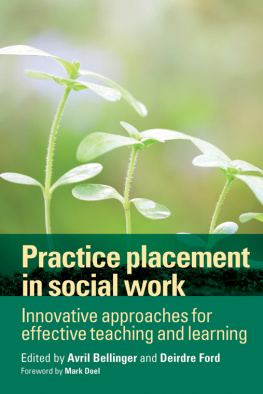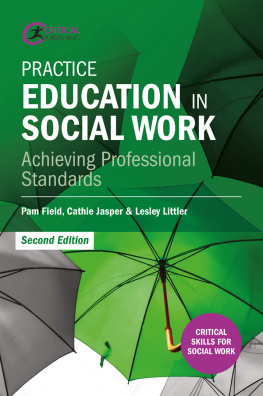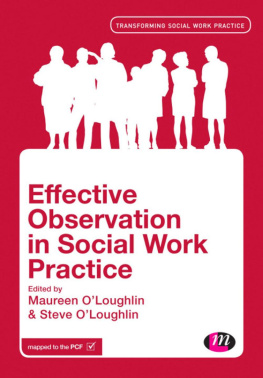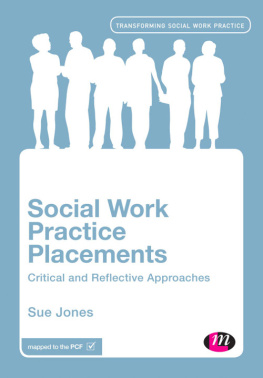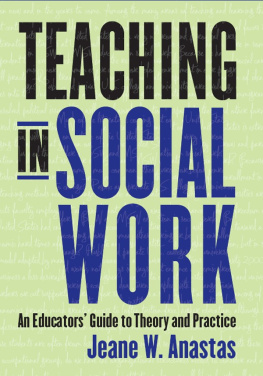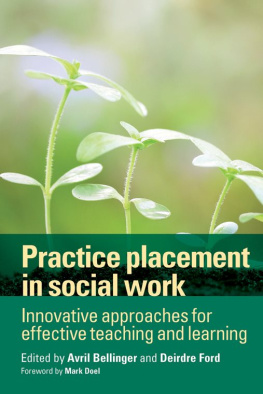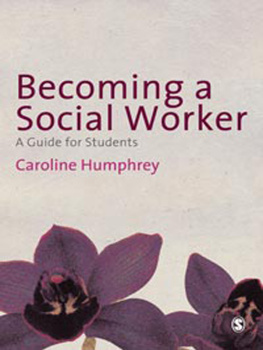First published in Great Britain in 2016 by
Policy Press University of Bristol 1-9 Old Park Hill Bristol BS2 8BB UK Tel +44 (0)117 954 5940 e-mail
North American office: Policy Press c/o The University of Chicago Press 1427 East 60th Street Chicago, IL 60637, USA t: +1 773 702 7700 f: +1 773-702-9756 e:
Policy Press 2016
British Library Cataloguing in Publication Data
A catalogue record for this book is available from the British Library
Library of Congress Cataloging-in-Publication Data
A catalog record for this book has been requested
ISBN 978-1-4473-1861-3 paperback
ISBN 978-1-4473-1860-6 hardcover
ISBN 978-1-4473-1864-4 ePub
ISBN 978-1-4473-1865-1 Mobi
The right of Avril Bellinger and Deirdre Ford to be identified as editors of this work has been asserted by them in accordance with the Copyright, Designs and Patents Act 1988.
All rights reserved: no part of this publication may be reproduced, stored in a retrieval system, or transmitted in any form or by any means, electronic, mechanical, photocopying, recording, or otherwise without the prior permission of Policy Press.
The statements and opinions contained within this publication are solely those of the contributors and editors and not of the University of Bristol or Policy Press. The University of Bristol and Policy Press disclaim responsibility for any injury to persons or property resulting from any material published in this publication.
Policy Press works to counter discrimination on grounds of gender, race, disability, age and sexuality.
Cover design by Hayes Design
Front cover image: istock
Readers Guide
This book has been optimised for PDA.
Tables may have been presented to accommodate this devices limitations.
Image presentation is limited by this devices limitations.
This book is dedicated to our friend and colleague Diane Garrard, who stood up to injustice in all its forms without flinching. Her humour, reliability, plain-speaking and humanity have held us steady.
The social work placement has always been an Other Place; this is its power. When students enter a placement, they have the chance of an altered state, an experience of creativity that comes from, hopefully, a destabilising and disorienting space. That is the radical vision, so powerfully articulated in this book to contrast with the tired clich that the student goes on placement to put into practice the knowledge they have acquired in college, theory into practice. It is a hope for transformational learning contrasted with the passing on of existing mindsets.
More transformational still is the notion of an Other Place created by the students themselves (and, in some cases, by service users too). Rather than placements passively awaiting their apprentices or, at best, valuing the coming students as a resource, these Other Places are services generated by students to provide services that would not exist without them. Here, then, is A Place that fully integrates learning and practice through the agency of social work. Of course, these Other Places do not happen without tremendous persistence, wisdom and bravery to ensure that they are sustainable and that they are safe places, both for the students learning and, most of all, for those who use their services.
Over the years, the happenstance that characterised the social work placement a Nowhere Land that could be magical or dire but was always unchartered quickly started to experience the glare of scrutiny. With this attention came audit, regulation and control; this Other Place did not escape the obsessive mapping that bisected and dissected professional life throughout the public sector. The guidance became oppressive, the bullet-pointed lists of injunctions and imperatives longer than the placement documentation itself. Nowhere was this more strongly evidenced than in the decision about a students ability or suitability for social work the assessment. This decision, always complex, became deadeningly complicated.
Complication is a ball of wool that has become knotted, unravellable, unusable; complexity, on the other hand, is devising patterns and using the wool to turn these patterns into beautiful, wearable garments. Social work education will always be complex but it has become unhelpfully and tediously knotted. Take the long strands of criteria for student competence on placement if we were to replace them simply with questions, would we lose anything?
How does the students work promote social justice?
To what extent are the students actions fair and compassionate?
How does the student demonstrate integrity?
How does the student understand and use discretion?
Where is safeguarding and risk?, the traditionalist asks. We might reply: Are these concerns not embedded in the four questions, each of which requires us to interrogate social work practice and learning more thoroughly than a list of standards or indicators? Us is the student, service user, practice educator, tutor.
It is good to remind ourselves that students respond in different ways to these Other Places. When researching non-traditional placements, as they were then known, I came across four students placed together to develop a community resource in partnership with a group of service users. Three of the four thrived in this environment, but the fourth felt it to be a deeply Alien Place. He was an A student when it came to writing essays, but his level of bewilderment was too great for him to experience that hoped-for creative disorientation. To what extent, then, do we wrap the placement around the student and how much do we expect the student to make their own adaptations? Is this Other Place a safe place for the student for instance, if this A student is a lone, black, gay man in an exclusively female, white, straight Place? So, there is a trade-off between the students responsibility to be proactive and the Other Places capacity to home him/her and, of course, there is the universitys obligation to support and develop these homes.
How do we make the classroom an Other Place, and should we? The college setting is often referred to as The Course, as if it is the default location for social work education; yet, practitioners consistently report placements as what they remember most (that goes for me too). Practice-led class curricula are not easily established in the university environment and are open to a kind of academic snobbery, even though theorising from and about professional practice is arguably a more complex activity than theorising an unapplied discipline. A practice-led curriculum is a noble attempt to integrate students learning between Both Places.

